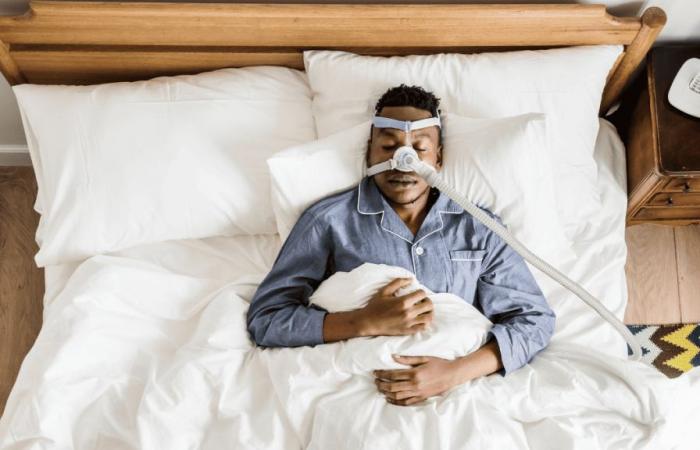A new study finds that people who suffer from sleep apnea may be at greater risk of memory loss and cognitive problems. The disorder is a disease characterized by breathing pauses during sleep that lead to a drop in blood oxygen saturation and generate nocturnal micro-awakenings.
read more
Researchers evaluated thousands of patients
The researchers explain that some of these awakenings are short-lived and often the person does not remember waking up during the night. Despite this, they cause sleep fragmentation.
The study was presented during a conference of the American Academy of Neurology, which took place in April in Denver, United States. In total, 4,257 people answered a National Health and NutritionExamination questionnaire providing data on sleep quality, with questions related to snoring, pauses in breathing, the sensation of waking up without air, and difficulty with memory, concentration or mental confusion.
After adjusting for factors that can affect memory, such as age and educational level, those responsible for the work found that those who had apnea symptoms were 50% more likely to also have memory problems.
Apnea causes a change in sleep architecture, which is the distribution of sleep stages throughout the night. Fragmented sleep alters these stages, generally resulting in a reduction in the deeper ones, which play an important role in brain function, memory formation and learning capacity.
Maira Honorato, neurologist and sleep medicine specialist at Hospital Israelita Albert Einstein
Other damages caused by sleep apnea
- Experts say that the drop in oxygen saturation during sleep directly affects brain function.
- Apnea also impairs the activation of a “brain cleansing” process, the glymphatic system, which drains toxic waste from the Central Nervous System.
- Risk factors for developing apnea include being male, advanced age, obesity, cranial malformation and retrognathia (the position of the jaw in which the chin is left behind).
- The disease causes nocturnal symptoms (snoring, pauses in breathing, waking up short of breath or several times at night) and daytime symptoms (drowsiness, tiredness, difficulty concentrating and memory problems).
- Treatment includes the use of CPAP, a device used for sleeping that generates pressure in the airways through a mask, as well as orthognathic surgeries, speech therapy sessions and dental treatment, with the use of a mandibular splint, as well as lifestyle changes. .






